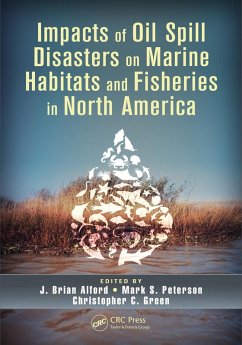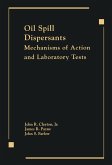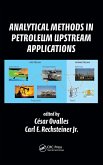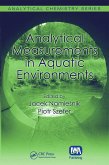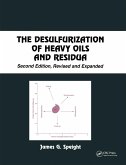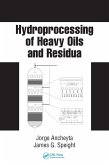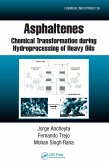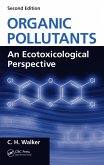Impacts of Oil Spill Disasters on Marine Habitats and Fisheries in North America (eBook, PDF)
Redaktion: Alford, J. Brian; Green, Christopher C.; Peterson, Mark S.


Alle Infos zum eBook verschenken

Impacts of Oil Spill Disasters on Marine Habitats and Fisheries in North America (eBook, PDF)
Redaktion: Alford, J. Brian; Green, Christopher C.; Peterson, Mark S.
- Format: PDF
- Merkliste
- Auf die Merkliste
- Bewerten Bewerten
- Teilen
- Produkt teilen
- Produkterinnerung
- Produkterinnerung

Hier können Sie sich einloggen

Bitte loggen Sie sich zunächst in Ihr Kundenkonto ein oder registrieren Sie sich bei bücher.de, um das eBook-Abo tolino select nutzen zu können.
This book contains scientific findings and reviews from experts researching impacts of the Exxon Valdez, Ixtoc I, and Deepwater Horizon oil spills on coastal fishery resources. It describes physiological effects of oil-derived compounds on fishes, presenting results from field and laboratory investigations. It addresses the science of assessing oil spill impacts on coastal habitats, with an emphasis on salt-marsh ecosystems in the Gulf of Mexico. It also explores quantified and potential impacts of oil spills on population and community dynamics of commercial and recreational fishery species.
- Geräte: PC
- ohne Kopierschutz
- eBook Hilfe
- Größe: 23.29MB
![Oil Spill Dispersants (eBook, PDF) Oil Spill Dispersants (eBook, PDF)]() Clayton / PayneOil Spill Dispersants (eBook, PDF)33,95 €
Clayton / PayneOil Spill Dispersants (eBook, PDF)33,95 €![Analytical Methods in Petroleum Upstream Applications (eBook, PDF) Analytical Methods in Petroleum Upstream Applications (eBook, PDF)]() Analytical Methods in Petroleum Upstream Applications (eBook, PDF)46,95 €
Analytical Methods in Petroleum Upstream Applications (eBook, PDF)46,95 €![Analytical Measurements in Aquatic Environments (eBook, PDF) Analytical Measurements in Aquatic Environments (eBook, PDF)]() Analytical Measurements in Aquatic Environments (eBook, PDF)59,95 €
Analytical Measurements in Aquatic Environments (eBook, PDF)59,95 €![The Desulfurization of Heavy Oils and Residua (eBook, PDF) The Desulfurization of Heavy Oils and Residua (eBook, PDF)]() The Desulfurization of Heavy Oils and Residua (eBook, PDF)202,95 €
The Desulfurization of Heavy Oils and Residua (eBook, PDF)202,95 €![Hydroprocessing of Heavy Oils and Residua (eBook, PDF) Hydroprocessing of Heavy Oils and Residua (eBook, PDF)]() Hydroprocessing of Heavy Oils and Residua (eBook, PDF)38,95 €
Hydroprocessing of Heavy Oils and Residua (eBook, PDF)38,95 €![Asphaltenes (eBook, PDF) Asphaltenes (eBook, PDF)]() Jorge AncheytaAsphaltenes (eBook, PDF)63,95 €
Jorge AncheytaAsphaltenes (eBook, PDF)63,95 €![Organic Pollutants (eBook, PDF) Organic Pollutants (eBook, PDF)]() C. H. WalkerOrganic Pollutants (eBook, PDF)63,95 €
C. H. WalkerOrganic Pollutants (eBook, PDF)63,95 €-
-
-
Dieser Download kann aus rechtlichen Gründen nur mit Rechnungsadresse in A, B, BG, CY, CZ, D, DK, EW, E, FIN, F, GR, HR, H, IRL, I, LT, L, LR, M, NL, PL, P, R, S, SLO, SK ausgeliefert werden.
- Produktdetails
- Verlag: Taylor & Francis
- Seitenzahl: 340
- Erscheinungstermin: 29. Oktober 2014
- Englisch
- ISBN-13: 9781466557215
- Artikelnr.: 57082161
- Verlag: Taylor & Francis
- Seitenzahl: 340
- Erscheinungstermin: 29. Oktober 2014
- Englisch
- ISBN-13: 9781466557215
- Artikelnr.: 57082161
Physiological Effects of the Surfactant Dioctyl Sodium Sulfosuccinate at
Varying Salinities During Larval Development of the Gulf Killifish (
Fundulus grandis). Endocrine Disruption as a Mechanism of Action Underlying
Sublethal Effects in Pacific Herring (Clupea harengus pallasi) Exposed to
the Dissolved Hydrocarbon Fraction of Crude Oil. Proper Handling of Animal
Tissues from the Field to the Laboratory Supports Reliable Biomarker
Endpoints. Early Review of Potential Impacts of the Deepwater Horizon Oil
Spill on Gulf of Mexico Wetlands and Their Associated Fisheries. A Brief
Review of the Effects of Oil and Dispersed Oil on Coastal Wetlands
Including Suggestions for Future Research. Oil Contamination in Mississippi
Salt Marsh Habitats and the Impacts to Spartina alterniflora
Photosynthesis. City, County, and State Methods to Protect Nearshore
Fisheries Habitat in Mississippi During the Deepwater Horizon Oil Spill.
Lessons from the 1989 Exxon Valdez Oil Spill: A Biological Perspective. The
Exxon Valdez Oil Spill and the Collapse of the Prince William Sound Herring
Stock: A Reexamination of Critical Biomass Estimates. Effects of the Ixtoc
I Oil Spill on Fish Assemblages in the Southern Gulf of Mexico. Impacts of
the Deepwater Horizon Oil Spill on the Reproductive Biology of Spotted
Seatrout (Cynoscion nebulosus). Impacts of the Deepwater Horizon Oil Spill
on Blue Crab, Callinectes sapidus, Larval Settlement in Mississippi. Oyster
Responses to the Deepwater Horizon Oil Spill across Coastal Louisiana:
Examining Oyster Health and Hydrocarbon Bioaccumulation. Occurrence of
Lemon Sharks (Negaprion brevirostris) at the Chandeleur Islands, Louisiana,
before and after the 2010 Deepwater Horizon Disaster.
Physiological Effects of the Surfactant Dioctyl Sodium Sulfosuccinate at
Varying Salinities During Larval Development of the Gulf Killifish (
Fundulus grandis). Endocrine Disruption as a Mechanism of Action Underlying
Sublethal Effects in Pacific Herring (Clupea harengus pallasi) Exposed to
the Dissolved Hydrocarbon Fraction of Crude Oil. Proper Handling of Animal
Tissues from the Field to the Laboratory Supports Reliable Biomarker
Endpoints. Early Review of Potential Impacts of the Deepwater Horizon Oil
Spill on Gulf of Mexico Wetlands and Their Associated Fisheries. A Brief
Review of the Effects of Oil and Dispersed Oil on Coastal Wetlands
Including Suggestions for Future Research. Oil Contamination in Mississippi
Salt Marsh Habitats and the Impacts to Spartina alterniflora
Photosynthesis. City, County, and State Methods to Protect Nearshore
Fisheries Habitat in Mississippi During the Deepwater Horizon Oil Spill.
Lessons from the 1989 Exxon Valdez Oil Spill: A Biological Perspective. The
Exxon Valdez Oil Spill and the Collapse of the Prince William Sound Herring
Stock: A Reexamination of Critical Biomass Estimates. Effects of the Ixtoc
I Oil Spill on Fish Assemblages in the Southern Gulf of Mexico. Impacts of
the Deepwater Horizon Oil Spill on the Reproductive Biology of Spotted
Seatrout (Cynoscion nebulosus). Impacts of the Deepwater Horizon Oil Spill
on Blue Crab, Callinectes sapidus, Larval Settlement in Mississippi. Oyster
Responses to the Deepwater Horizon Oil Spill across Coastal Louisiana:
Examining Oyster Health and Hydrocarbon Bioaccumulation. Occurrence of
Lemon Sharks (Negaprion brevirostris) at the Chandeleur Islands, Louisiana,
before and after the 2010 Deepwater Horizon Disaster.
